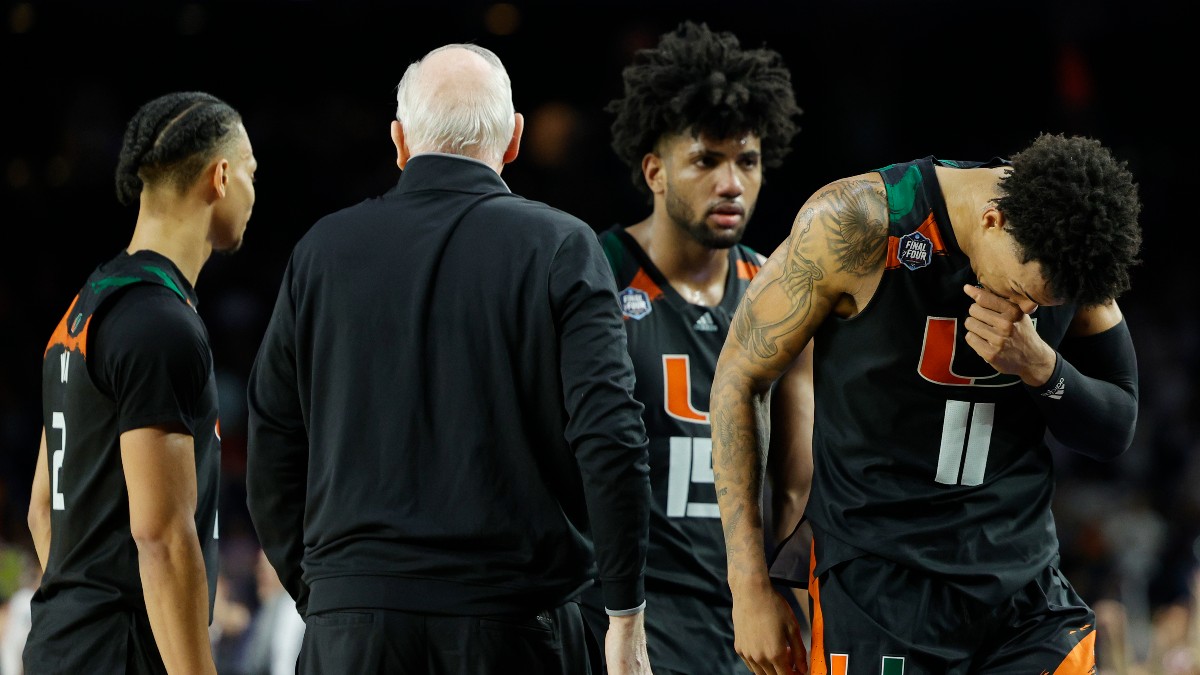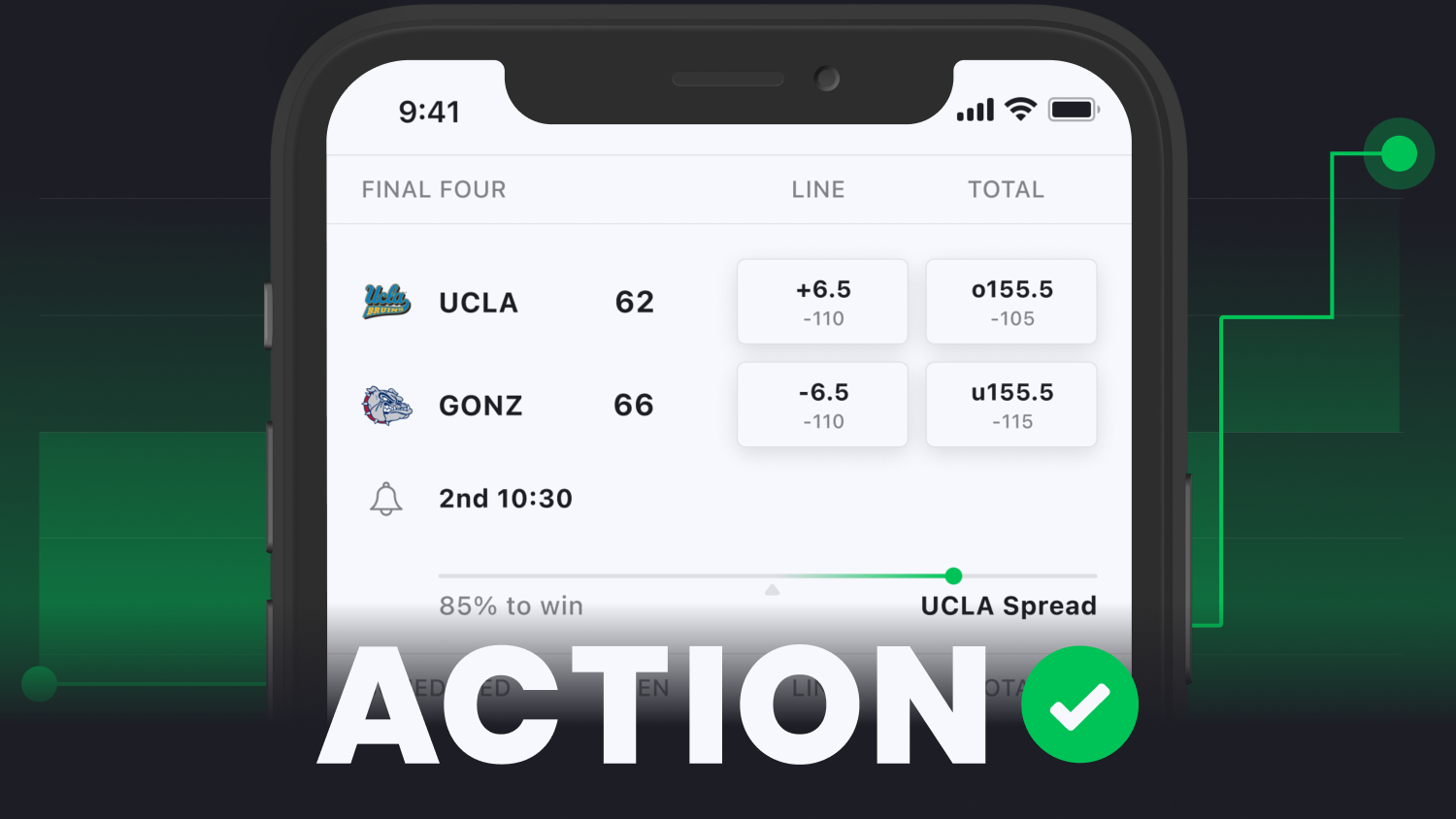Nasdaq Threatens to Delist Crucial NIL Booster’s Company
Picture by Getty Images.
The darling of the NIL era in college sports and his company LifeWallet will receive a delisting notice by the Nasdaq after trading under $1 for 30 consecutive days.
John Ruiz's company ($LIFW) closed at $0.73 on Friday, culminating a tumultuous year that saw LifeWallet lose about 93% of its share value.
LifeWallet and Ruiz now have roughly 180 calendar days to comply with the Nasdaq's terms and reach a price of above $1 per share or risk being delisted from the stock exchange.
Delisting a company wouldn't eliminate its shares, nor does it necessarily mean the company is in line to go bankrupt. What it would do, though, is drastically devalue an already faulty company and make it far more difficult to raise capital.
Ruiz is Miami's top name, image and likeness booster, doling out millions across the university's sports programs. He helped construct the school's Final Four men's basketball team, giving $800,000 to Nijel Pack to transfer from Kansas State and $100,000 to Isaiah Wong to incentivize him to stay put. He has deals with Hanna and Haley Cavinder, twin influencers who transferred from Fresno State before leaving collegiate athletics earlier this month.
In all, Ruiz has backed more than 100 Miami athletes across all sports at the cost of more than $5 million.
But away from sports, LifeWallet is in disarray.
In addition to a potential delisting, the company faces litigation from its original founder, missed a recent earnings call and owes millions to creditors that may quickly ask for their money back.
LifeWallet owes $788 million to litigation funding company Virage Capital Management, but a new deal LifeWallet structured with Virage makes it clear that Virage can call for the money whenever it deems fit. Delisting is often followed by a line of creditors asking for their money back.
LifeWallet also has a $60 million deal with a company called Cano Health. If LifeWallet doesn’t file an annual report by the end of this month, that money is owed. LifeWallet was supposed to issue an earnings report on March 31 but missed the deadline, saying “management needs additional time to finalize and analyze” their numbers.
Two weeks later, the company told the Securities and Exchange Commission that any financial information — including filed earnings releases, investor presentations and other communications — put out by the company over the last year “should no longer be relied upon.”
Another LifeWallet lender — a financial services company called Nomura — is pulling in $350,000 per month in interest ahead of a $26 million payment that is also due next September.
And a lawsuit filed by LifeWallet's original founder alleges Ruiz failed to fairly compensate him despite rebranding all of Ruiz’s businesses “to leverage the LifeWallet name” and utilizing LifeWallet’s software and technology platform in the process.
An email sent to LifeWallet's communication team was not returned on Friday night.
Ruiz has asserted in the past that all the proprietary assets that currently comprise LifeWallet were developed independently from the former founder, Norberto Menendez. Ruiz says his company only acquired the LifeWallet name from Menendez.
While LifeWallet had primarily been a digital wallet for medical records, after Ruiz bought it out, he incorporated his main business venture, which is to “identify and recover massive amounts of improper payments made by Medicare, Medicaid, and Commercial insurers from responsible parties.”
The SPAC Ruiz developed had been worth up to $33 billion on paper, the second-largest SPAC of all-time.
But much of the valuation was based on what Ruiz and the company said were proprietary algorithms that allowed them to find the right cases, litigate them and make money.
Ruiz provided guidance that 2022 revenue would approach $1 billion. When the company first reported quarterly earnings, nine months of revenue yielded just $3.9 million after projecting income of $992 million.
Operating losses ended at $118 million.
For his part, Ruiz told the Miami Herald this week that LifeWallet’s business challenges would not impact his ability to pay the athletes that promote his product.
“We continue to do business as usual,” Ruiz said. “Nothing has changed.”
How would you rate this article?





